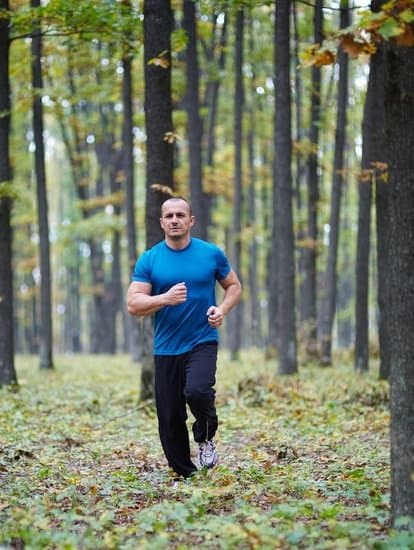Are you wondering how to be fit in 1 week without exercise? Many people believe that achieving fitness goals is solely dependent on intense workouts at the gym. However, this article will debunk the myth and provide alternative ways to achieve a fit body without having to engage in traditional exercise routines.
When it comes to fitness, diet plays a crucial role in achieving your goals. Understanding the importance of nutrition and making mindful choices can significantly impact your overall health and well-being. In addition to dietary changes, detoxing and cleansing can also contribute to a healthier body, leading to improved fitness levels.
Aside from traditional exercise, high-intensity interval training (HIIT) is gaining popularity for producing quick results in a short amount of time. This section will explore the benefits of HIIT and how it can be utilized for those looking to get fit in just one week.
By incorporating non-exercise physical activities into your daily routine, you can still burn calories and aid in weight loss without having to set foot in a gym. Furthermore, practicing mindfulness and stress management techniques, as well as ensuring adequate sleep and hydration, are essential components of achieving overall well-being and fitness.
Understanding the Importance of Diet in Achieving Fitness Goals
Many people believe that they can achieve their fitness goals without exercise, but the truth is that diet plays a crucial role in achieving overall fitness. It’s essential to understand that being fit is not just about looking good, but also about feeling good and having a body that functions at its best. A well-balanced diet can help you achieve this, even without engaging in regular exercise.
Choosing Nutrient-Dense Foods
One of the most important aspects of achieving fitness through diet is to choose nutrient-dense foods. These are foods that are high in nutrients but relatively low in calories. Fruits, vegetables, whole grains, lean protein sources, and healthy fats are all examples of nutrient-dense foods. By incorporating these into your diet, you can ensure that you are getting the essential vitamins and minerals your body needs to function optimally.
Avoiding Processed Foods and Added Sugars
Processed foods and those high in added sugars can have a negative impact on your overall health and fitness. These types of foods can lead to weight gain, increased inflammation, and an overall decrease in energy levels. By avoiding or minimizing the intake of these types of foods, you can support your body’s fitness goals and overall well-being.
Meal Planning and Portion Control
Another important aspect of using diet to achieve fitness goals is meal planning and portion control. By planning out your meals ahead of time and controlling portion sizes, you can ensure that you are consuming the right amount of nutrients without overeating. This can help with weight management as well as providing your body with the fuel it needs for daily activities.
By understanding the importance of diet in achieving fitness goals, you can make positive changes to your eating habits that will contribute to a fit and healthy body – even without engaging in regular exercise.
Detoxing and Cleansing for a Healthier Body
Detoxing and cleansing have become popular trends in the health and wellness industry, promising a quick fix to achieve a healthier body. However, it’s important to understand that the effectiveness of these methods in achieving long-term fitness goals is often debated. While some people may experience temporary weight loss or improved energy levels through detox programs, the sustainability and actual impact on overall health are questionable.
Understanding Detoxing and Cleansing
Detoxing and cleansing typically involve following a restrictive diet or consuming specific products with the aim of eliminating toxins from the body. While it is true that our bodies have natural detoxification processes, proponents of detox methods argue that additional support is needed due to exposure to environmental toxins and unhealthy dietary habits.
The Truth About Detoxing
The truth is that our liver, kidneys, and digestive system are highly efficient at removing waste and toxins from our bodies. Instead of focusing on short-term detox programs, individuals should prioritize adopting a balanced and nutritious diet to support their body’s natural detoxification abilities. By including plenty of fruits, vegetables, whole grains, lean proteins, and healthy fats in their diet, individuals can help promote optimal organ function for long-term health and fitness.
The Power of High-Intensity Interval Training (HIIT) for Quick Results
High-Intensity Interval Training (HIIT) has gained popularity in recent years for its effectiveness in achieving quick fitness results. HIIT involves short bursts of intense exercise followed by periods of rest or lower-intensity activity. Research has shown that this type of training can lead to significant improvements in cardiovascular health, endurance, and calorie burning in a shorter amount of time compared to traditional steady-state cardio.
One of the key benefits of HIIT is its ability to stimulate the body’s metabolism and increase the rate at which calories are burned both during and after the workout. This means that HIIT can be an efficient way to achieve weight loss and improve overall fitness without spending hours at the gym each day.
In fact, some studies have suggested that just 15-30 minutes of HIIT three times a week can lead to noticeable improvements in aerobic capacity and fat loss.
For those looking to get fit in 1 week without exercise, incorporating HIIT workouts into their routine can be a game-changer. By committing to just a few short sessions of this high-intensity training throughout the week, individuals can jumpstart their fitness journey and start seeing results quickly.
However, it’s important to note that while HIIT is effective for quick results, it should be combined with a balanced diet and other lifestyle factors for long-term success in achieving fitness goals.
| Benefit of HIIT | Importance |
|---|---|
| Efficient calorie burning | Stimulates metabolism |
| Improves aerobic capacity | Effective for fat loss |
Utilizing Non-Exercise Physical Activities for Weight Loss
When it comes to achieving fitness goals, exercise is often seen as a crucial component. However, there are some non-exercise physical activities that can also contribute to weight loss and overall fitness. These activities may not feel like traditional exercise, but they can still help you burn calories and improve your health.
Here are some non-exercise physical activities that you can incorporate into your daily routine to help with weight loss:
- Walking: Taking a brisk walk can be an effective way to burn calories and improve cardiovascular health. Whether it’s walking to work, taking the stairs instead of the elevator, or going for a stroll after dinner, increasing your daily steps can make a difference in your overall fitness.
- Household Chores: Household chores such as vacuuming, gardening, and cleaning can also contribute to calorie burning. Spending time doing these activities not only helps keep your home tidy but also provides an opportunity for physical activity.
- Active Hobbies: Engaging in active hobbies such as dancing, swimming, or playing a sport can be a fun way to stay physically active without feeling like you’re exercising. These activities not only promote weight loss but also help improve strength and flexibility.
Incorporating these non-exercise physical activities into your daily routine can support your weight loss goals and contribute to overall fitness. While they may not replace the benefits of regular exercise entirely, they can certainly complement a healthy diet and lifestyle for those looking to achieve fitness goals in a short amount of time.
Mindfulness and Stress Management for Overall Well-Being
Stress is a common barrier to achieving fitness goals, and it can have significant effects on both physical and mental health. While exercise is often recommended as a stress-reliever, it is possible to improve overall well-being and manage stress without engaging in traditional workout routines.
One effective method for reducing stress and promoting mindfulness is through meditation and deep breathing exercises. Taking just a few minutes each day to sit quietly, focus on your breath, and clear your mind can have a profound impact on stress levels.
In addition to meditation, engaging in activities that bring joy and relaxation can also contribute to stress management and overall well-being. This could include hobbies such as painting, gardening, or playing music. Finding time for activities that bring happiness can help reduce cortisol levels and improve mental clarity.
It’s important to recognize the connection between mindfulness, stress management, and physical health. Chronic stress can have detrimental effects on the body, leading to increased inflammation, weight gain, and decreased immune function. By incorporating mindfulness practices into daily life, individuals can support their overall well-being while working towards fitness goals – all without relying on traditional exercise methods.
| Mindfulness Practice | Effect on Stress Levels |
|---|---|
| Meditation | Reduces cortisol levels and promotes relaxation |
| Hobbies | Provides joy and mental clarity, reducing stress |
Importance of Proper Sleep and Rest in Achieving Fitness Goals
Proper sleep and rest are often overlooked when it comes to achieving fitness goals, but they are crucial components of a healthy lifestyle. Without adequate rest, the body is unable to recover and repair itself, making it difficult to see the desired results. Here are some tips on how to prioritize sleep and rest for a fit body in just one week without exercise:
- Establish a consistent sleep schedule: Aim for 7-9 hours of sleep each night and try to go to bed and wake up at the same time every day.
- Create a calming bedtime routine: Engage in relaxing activities before bed such as reading, taking a warm bath, or practicing deep breathing exercises to signal to your body that it’s time to wind down.
- Avoid electronics before bed: The blue light emitted by phones, tablets, and computers can interfere with the body’s natural sleep-wake cycle, so it’s best to avoid screens at least an hour before bedtime.
In addition to proper sleep, rest is equally important in achieving fitness goals. Rest days are crucial for muscle recovery and growth, especially if you have been engaging in high-intensity workouts. It’s important to give your body time off from strenuous activity to prevent burnout and reduce the risk of injury.
The Benefits of Prioritizing Sleep and Rest
- Improved cognitive function
- Enhanced physical performance
- Regulation of hormones related to appetite control and metabolism
By incorporating these strategies into your daily routine, you can optimize your chances of achieving a fit body in just one week without exercise while promoting overall well-being. Remember that real fitness results come from a holistic approach that includes not only diet and physical activity but also adequate sleep and rest.
Hydration and Its Role in Achieving a Fit Body
When it comes to achieving a fit body, hydration is often overlooked but plays a crucial role. Proper hydration is essential for supporting overall health and well-being, as well as for aiding in weight loss and fitness goals. Many people are unaware of the impact that hydration has on their body composition and overall fitness level. In fact, dehydration can lead to decreased physical performance, fatigue, and even hinder weight loss efforts.
To achieve a fit body without exercise in just one week, it is important to prioritize hydration. Drinking an adequate amount of water not only helps to flush out toxins from the body but also supports metabolism and aids in digestion. Additionally, staying hydrated can help curb cravings and prevent overeating, which are essential factors in achieving quick fitness results.
Incorporating other hydrating beverages such as herbal teas or infused water can add variety to the daily fluid intake while providing additional health benefits. Keeping a water bottle with you throughout the day can serve as a constant reminder to stay hydrated. By focusing on increasing fluid intake, individuals can experience improved energy levels, better digestion, and overall enhanced well-being – all contributing to achieving a fit body in just one week without exercise.
Conclusion
In conclusion, achieving fitness goals in just one week without exercise may not be realistic. While it is possible to make changes to your diet, detox your body, and engage in non-exercise physical activities for weight loss, true physical fitness takes time and dedication. It is essential to set realistic expectations and focus on sustainable lifestyle changes for long-term wellness.
It is important to understand that quick fixes and crash diets are often not sustainable and can have negative effects on your overall health. Instead of striving for rapid results, focus on making small, achievable changes to your daily routine. Incorporating a balanced diet, staying hydrated, managing stress, getting proper sleep, and finding enjoyable physical activities will help you achieve long-lasting fitness benefits.
In the end, being fit in one week without exercise might not be attainable in a healthy manner. Rather than looking for shortcuts or temporary solutions, prioritize creating a sustainable lifestyle that supports your overall wellness. By making gradual changes and embracing a holistic approach to health and fitness, you can achieve lasting results that contribute to your well-being for years to come.
Frequently Asked Questions
How Can I Get Slim in 7 Days Without Exercise?
It’s not healthy or realistic to try to get slim in 7 days without exercise. Rapid weight loss can be harmful and unsustainable. Instead, focus on making small, sustainable changes to your diet and lifestyle for long-term results.
How Can I Fit My Body in One Week?
Trying to “fit” your body in one week is not a healthy approach to weight management. A sustainable, healthy weight loss plan involves making gradual changes to your eating habits and engaging in regular physical activity.
How Can I Fit Without Exercise?
While it’s possible to make some progress towards fitness goals without formal exercise, it’s important to incorporate some form of physical activity into your routine for overall health and wellness. This could include activities like walking, yoga, or even just being more active throughout the day.

Passionate about providing useful information to anyone with an interest in the field of Personal Training, I strive to pass on to our readers quality information and to answer any questions about Personal Trainers, the work they do and how to become one.





